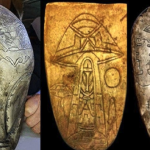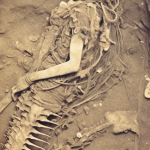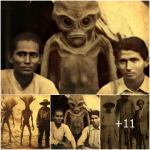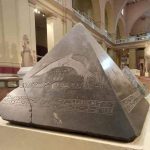Horrible Relics: Skull Trophies with Ropes and Holes in the Forehead from the Nazca Culture

Chilling Trophies of the Nazca Culture: Skulls Bearing Forehead Holes Tied with Ropes, Hinting at a Gruesome Tradition of War Trophies
The Nazca culture, known for its enigmatic geoglyphs etched into the desert plains of southern Peru, left behind another chilling legacy: a collection of skulls bearing forehead holes and tied with ropes. These macabre artifacts offer a glimpse into a gruesome tradition of war trophies that prevailed among the Nazca people.
Archaeologists have uncovered numerous examples of these eerie trophies, which were carefully preserved over centuries. The skulls bear distinct holes in the forehead region, most likely made postmortem, and were tied together with ropes, forming eerie displays that were likely exhibited as symbols of conquest and power.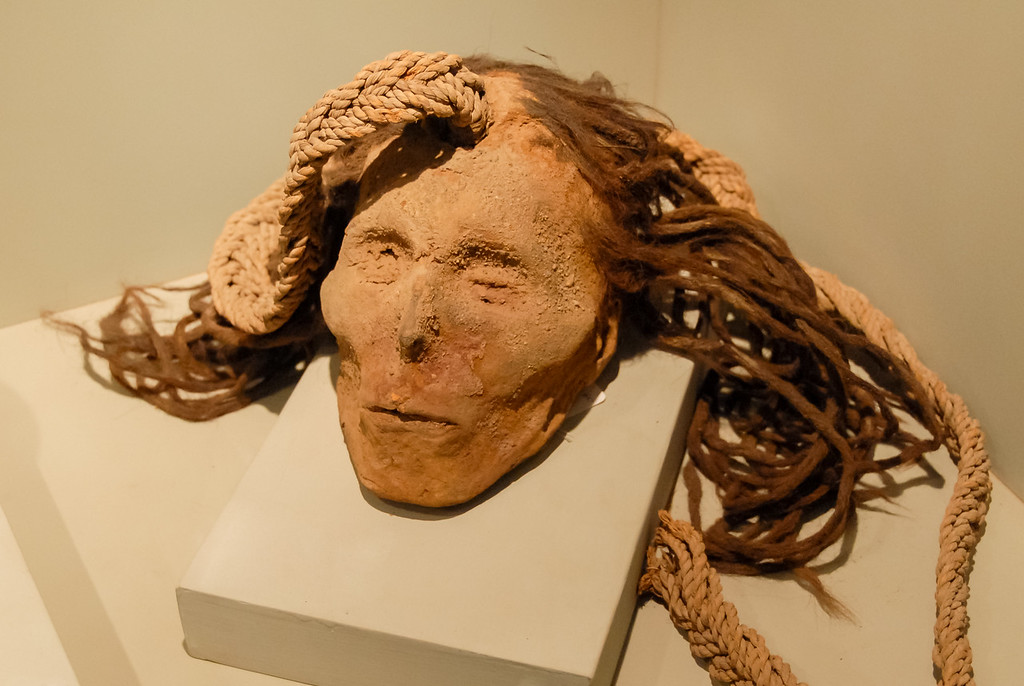
The presence of the forehead holes suggests a ritualistic practice involving the removal of the skull’s contents, possibly to separate the physical remains from the spiritual essence. The ropes used to bind the skulls together indicate a deliberate intention to showcase these trophies, serving as a visual reminder of the Nazca culture’s military prowess.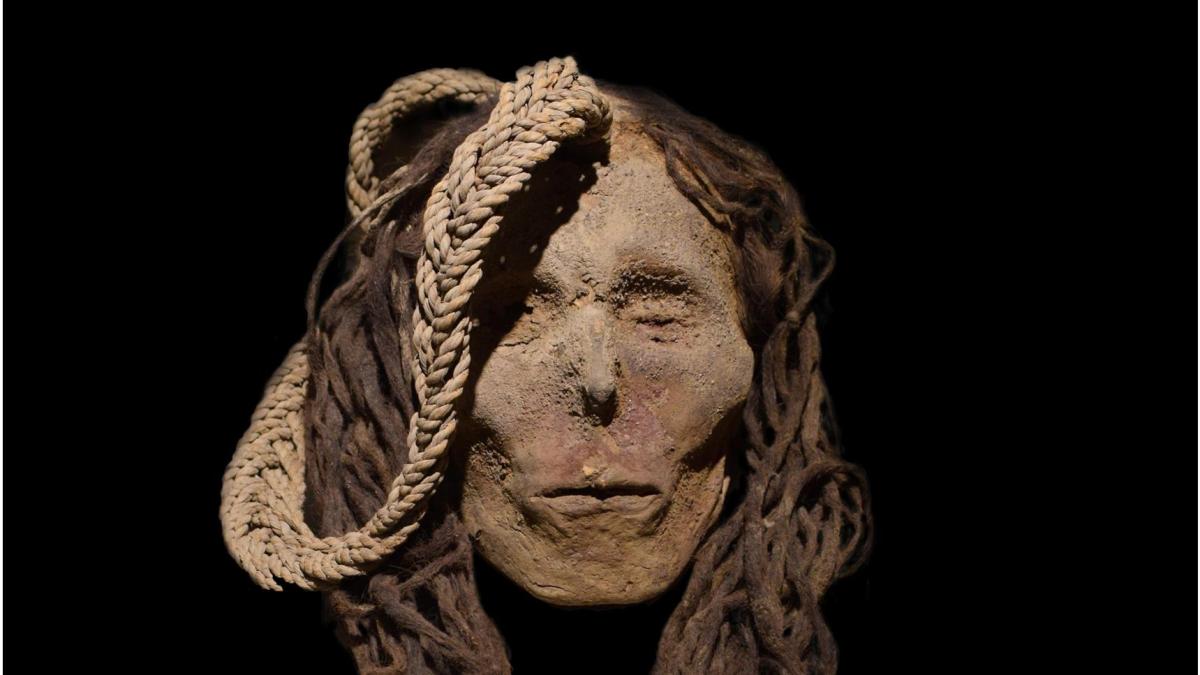
The significance of these trophies within Nazca society remains a subject of speculation. Some theories propose that they were revered as symbols of bravery and triumph in warfare, while others suggest they may have served as offerings to deities or ancestral spirits. Regardless of their exact purpose, the presence of these chilling artifacts reveals a cultural fascination with violence and the glorification of war.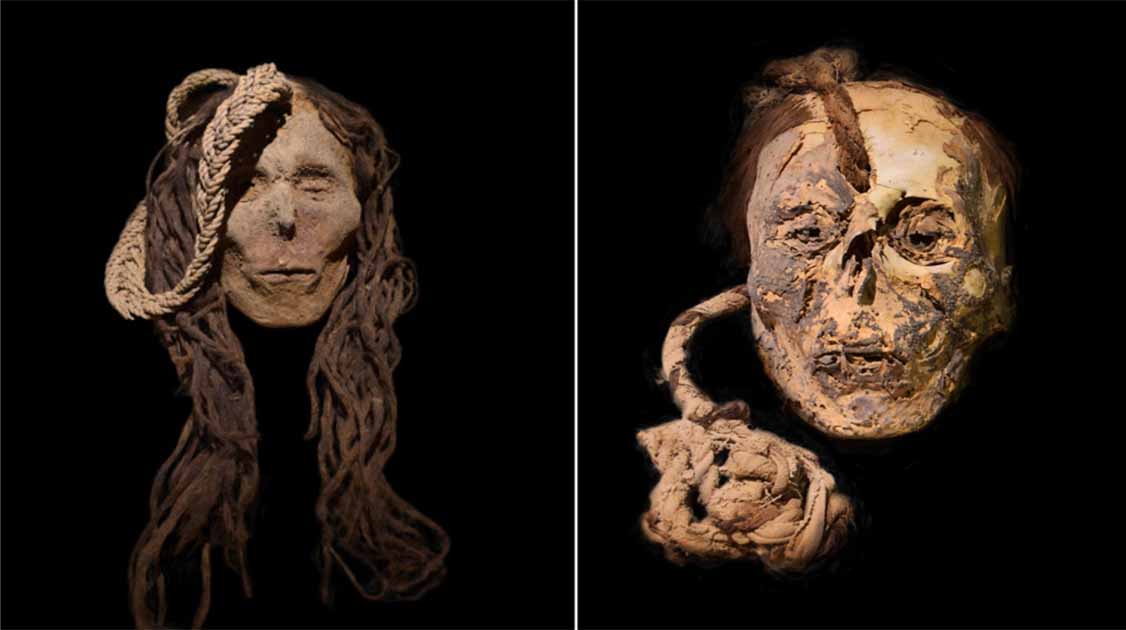
The Nazca culture flourished between 100 BCE and 800 CE, and their society was characterized by intricate pottery, textile art, and the famous Nazca Lines. However, the discovery of these skull trophies suggests a darker side to their civilization, one that involved a tradition of collecting and displaying the remains of defeated enemies.
The study and preservation of these artifacts provide valuable insights into the cultural practices and belief systems of the Nazca people. It is a reminder that history is not always glamorous or idyllic but can be marked by violence and the display of power.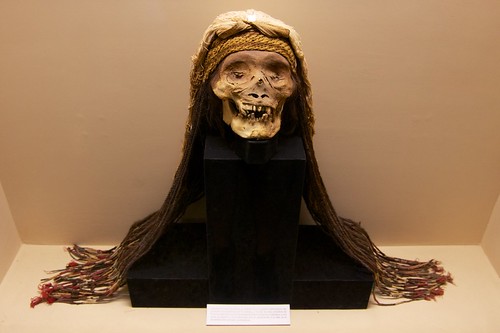
As we delve deeper into the mysteries of the Nazca culture, these chilling trophies stand as a haunting testament to the complexities of human civilization. They serve as a reminder of the diversity and sometimes disturbing aspects of ancient cultures, prompting us to contemplate the depths of human nature and the legacies left behind by those who came before us.



